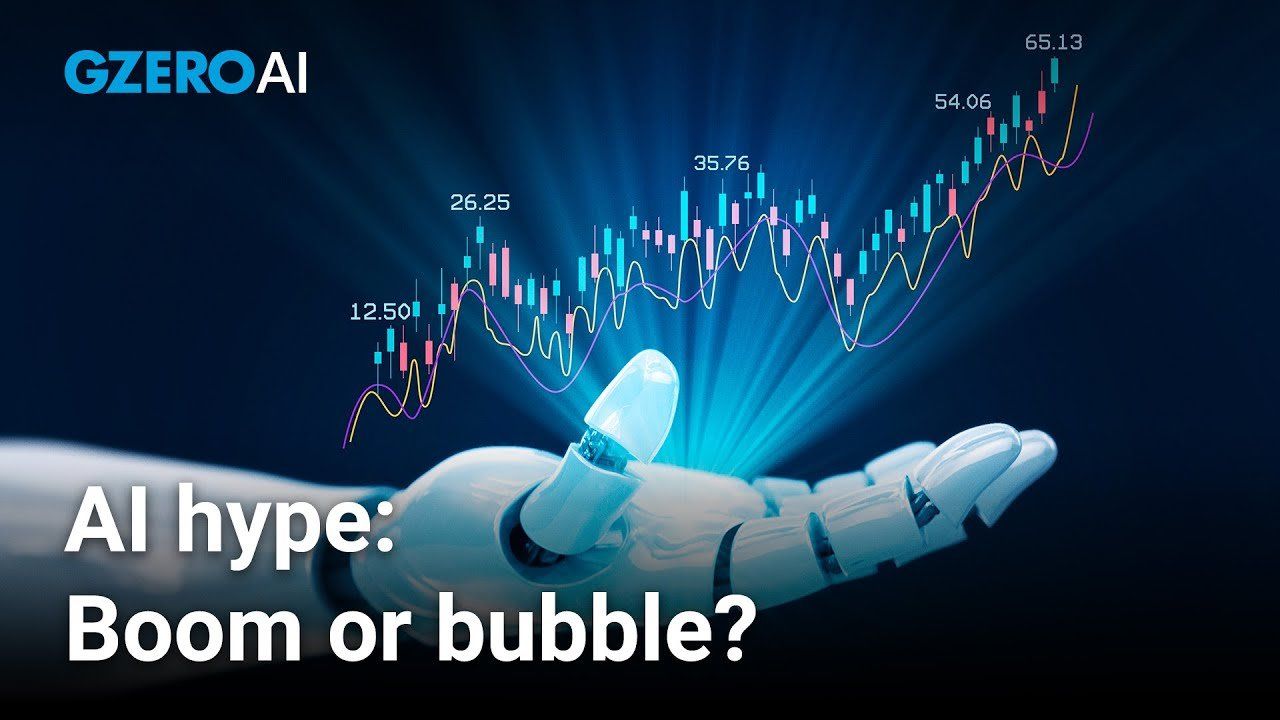AI and the Stock Market: Goldman Sachs' Perspective
Goldman Sachs asserts the stock market isn't in an AI bubble, highlighting AI's tangible impact and current market dynamics.

AI and the Stock Market: Goldman Sachs' Perspective
The rapid advancement of artificial intelligence (AI) has sparked a heated debate about whether the stock market is experiencing an AI bubble. Goldman Sachs, a leading financial institution, has weighed in on this topic, asserting that the market is not in an AI bubble. This stance is significant, as it reflects a nuanced understanding of both the potential of AI and the current market dynamics.
Background: AI and the Stock Market
Artificial intelligence has been transforming various sectors, from technology to healthcare, with its ability to process vast amounts of data, automate tasks, and enhance decision-making. The stock market's response to AI has been enthusiastic, with many tech companies experiencing significant gains due to their involvement in AI-related projects. This enthusiasm has led some analysts to question whether the market's valuation of AI-focused companies is realistic or if it represents a speculative bubble.
Goldman Sachs' Assessment
Goldman Sachs' assertion that the stock market is not in an AI bubble is based on several key factors:
-
Innovation and Adoption: Unlike past bubbles where speculation often outran actual innovation, AI is delivering tangible results across industries. Companies are leveraging AI to improve efficiency, reduce costs, and create new products and services. This real-world impact supports the higher valuations of companies heavily invested in AI.
-
Market Valuations: While some AI-focused companies have seen significant stock price increases, overall market valuations are not as inflated as they were during previous bubbles, such as the dot-com bubble of the late 1990s. Goldman Sachs points out that the broader market indices, such as the S&P 500, have not experienced the same level of speculative fervor seen in past bubbles.
-
Earnings Growth: Companies involved in AI are showing strong earnings growth, which supports their stock prices. This growth is driven by the increasing demand for AI solutions across industries, suggesting that the market's enthusiasm for AI is not purely speculative.
Key Players and Technologies
Several key players and technologies are driving the AI narrative in the stock market:
-
NVIDIA: Known for its high-performance computing hardware, NVIDIA has been a major beneficiary of the AI boom. Its GPUs are crucial for training AI models, making it a bellwether for AI-related investments.
-
Google (Alphabet Inc.): Google's AI efforts, particularly in areas like machine learning and natural language processing, have been influential. Its AI technologies are integrated into various products, from search to cloud services.
-
Microsoft: Microsoft's acquisition of Nuance Communications and its investment in OpenAI underscore its commitment to AI. Its Azure cloud platform is also a major player in AI computing services.
Challenges and Future Outlook
While Goldman Sachs' assessment provides reassurance, there are challenges ahead:
-
Regulatory Environment: The rapid growth of AI raises regulatory questions. Governments and regulatory bodies are grappling with how to oversee AI development and deployment, which could impact market sentiment.
-
Technological Risks: As AI becomes more pervasive, there are concerns about its potential risks, including bias in AI systems and job displacement. These risks could temper market enthusiasm if not addressed.
-
Market Volatility: Even without a bubble, the stock market is inherently volatile. External factors, such as economic downturns or geopolitical tensions, can affect AI-focused stocks like any others.
Conclusion
Goldman Sachs' stance that the stock market is not in an AI bubble reflects a balanced view of AI's transformative potential and the current market realities. While there are valid concerns about speculation and future risks, the tangible impact of AI across industries supports the optimism surrounding these technologies. As AI continues to evolve and integrate into various sectors, investors will need to remain vigilant about market conditions and technological advancements. The future of AI in the stock market will depend on how effectively companies harness its potential while navigating the challenges it presents.
Additional Resources:
For investors interested in understanding more about AI's impact on the stock market, here are some resources:
- Reports from Financial Institutions: Goldman Sachs and other financial institutions regularly publish reports on market trends and AI's role in them.
- AI Industry News: Following leading AI companies and research institutions can provide insights into technological advancements and market shifts.
- Financial News Platforms: Websites like Barron's and Bloomberg offer in-depth analysis of market trends and the impact of AI on various sectors.
Image Credits:
- NVIDIA Logo: Wikipedia Commons
- Google Logo: Wikipedia Commons
- Microsoft Logo: Wikipedia Commons
This article aims to provide a comprehensive overview of the debate surrounding an AI bubble in the stock market, highlighting Goldman Sachs' perspective and the broader context of AI's impact on the financial sector.



